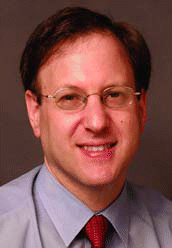Andrew F. Inglis Jr., MD, Associate Professor in the Division of Pediatric Otolaryngology at Children’s Hospital & Medical Center at the University of Washington in Seattle, is an outspoken critic of the use of cidofovir in RRP. In an editorial he wrote for The Annals of Otology, Rhinology, and Laryngology last year, Dr. Inglis pointed out that the doses used in RRP treatment lead to systemic drug levels that induced tumors and kidney toxicity in rats during short-term toxicity testing. Twenty percent of the rats in the study developed cancers, despite the fact that the toxicity tests were not the long-term studies typically used to look for cancer formation in animal models. The impact of RRP on some patients is so truly devastating that they would gladly assume the still-theoretical risk of cidofovir-induced human malignancy. On the other hand, the physician should be aware of the results of the animal studies with this drug, and put them in the proper perspective for the patient, he concluded.
Explore This Issue
October 2006In the absence of a randomized controlled trial, several groups are trying to follow patients treated with cidofovir to determine whether benign warts are converting to precancerous or cancerous lesions at a higher-than-expected rate. For example, Richard J. Smith, MD, Professor and Vice Head of the Department of Otolaryngology at the University of Iowa, and colleagues are collecting pathology samples, treatment data, and HPV type on RRP patients treated in the university health care system. No data are yet available however.
Novel Adjuvant Agents
In addition to cidofovir and interferon, two other agents look promising in the treatment of RRP: celecoxib, which is a cyclooxygenase (COX)-2 inhibitor, and a novel immune modulatory agent called HspE7. Preliminary data suggest that both agents reduce the severity of disease. Unfortunately, pivotal studies for each drug have been delayed because of a lack of funding.
Researchers at Long Island Jewish Medical Center in New Hyde Park, N.Y., have designed a multicenter randomized placebo-controlled trial to determine whether the use of celecoxib can reduce the frequency of surgery in adult RRP patients. While awaiting NIH funding for the multicenter study, the group is enrolling patients onto the protocol at Long Island Jewish Medical Center itself.
HspE7 is used as a therapeutic vaccine. The drug is a fusion protein linking together a heat shock protein, which should stimulate the immune system, and the HPV-16 E7 protein. (Although the E7 proteins from HPV-16, -11, and -6 are not identical, scientists hypothesize that they are similar enough to induce an anti-HPV immune response in RRP-affected individuals.) In an open-label multicenter trial, Dr. Derkay and colleagues treated 27 pediatric RRP patients with HspE7. Following an initial surgery to remove the papillomas, each patient received three subcutaneous injections of the fusion protein over three months. The primary endpoint of the trial was to determine whether treatment increased the interval between surgeries after the three-month treatment period as compared with the four surgeries prior to HspE7 treatment. The mean increase in duration between surgeries for all patients was 93% following therapy, suggesting that the agent was active in RRP.

Leave a Reply